 Technology
Technology  Technology
Technology  Movies and TV
Movies and TV 10 Film Shoots That Almost Ended in Disaster
 Politics
Politics The 10 Most Bizarre Presidential Elections in Human History
 Weird Stuff
Weird Stuff 10 Eggs-traordinarily Odd Eggs
 History
History 10 Desperate Last Stands That Ended in Victory
 Animals
Animals Ten Times It Rained Animals (Yes, Animals)
 Mysteries
Mysteries 10 Devastating Missing Child Cases That Remain Unsolved
 Creepy
Creepy 10 Scary Tales from the Middle Ages That’ll Keep You up at Night
 Humans
Humans 10 One-of-a-kind People the World Said Goodbye to in July 2024
 Movies and TV
Movies and TV 10 Holiday Movies Released at Odd Times of the Year
 Technology
Technology Making 10 Common Products from Very Unusual Sources
 Movies and TV
Movies and TV 10 Film Shoots That Almost Ended in Disaster
 Politics
Politics The 10 Most Bizarre Presidential Elections in Human History
Who's Behind Listverse?

Jamie Frater
Head Editor
Jamie founded Listverse due to an insatiable desire to share fascinating, obscure, and bizarre facts. He has been a guest speaker on numerous national radio and television stations and is a five time published author.
More About Us Weird Stuff
Weird Stuff 10 Eggs-traordinarily Odd Eggs
 History
History 10 Desperate Last Stands That Ended in Victory
 Animals
Animals Ten Times It Rained Animals (Yes, Animals)
 Mysteries
Mysteries 10 Devastating Missing Child Cases That Remain Unsolved
 Creepy
Creepy 10 Scary Tales from the Middle Ages That’ll Keep You up at Night
 Humans
Humans 10 One-of-a-kind People the World Said Goodbye to in July 2024
 Movies and TV
Movies and TV 10 Holiday Movies Released at Odd Times of the Year
10 Times A Single Vote Changed Everything
While we often hear that every vote counts, not everyone takes the message to heart. The true meaning behind that phrase is that if we all took the “one vote won’t make a difference” approach, it would add up and completely change the results.
There are many false stories about times that results were changed because of a single vote. They usually serve as warning tales. But not all of them are false. Below are 10 verifiable examples of times when a single vote was powerful enough to change the outcome.
10 Family Matters

The phrase “Get out to vote” is a staple of any election, one that all politicians will repeat countless times throughout their campaigns. You’ll often hear them say that they want you to vote even if you don’t vote for them. While that’s probably not always true, it signifies just how important voter turnout is.
If a politician wants to win, however, the buck stops with him when it comes to rallying the troops. As we have learned all too often, it doesn’t matter what the public wants. What matters is what the voters want, so making sure as many of your followers as possible head to the polls is crucial.
C.P. Joshi of Rajasthan, India, learned this lesson the hard way in 2008.
Although he did garner the support of 62,215 voters, he ended up losing his Rajasthan state assembly seat to Kalyan Singh Chouhan by a single vote. As heartbreaking as that would be under normal circumstances, what makes this particularly gut-wrenching are the votes he took for granted. Namely, those of his mother, wife, and chauffeur.[1]
Although the High Court declared the election void after Joshi lodged an appeal, this was ultimately unsuccessful and he still lost. We can only imagine the awkwardness of taking down the balloons on election night, while Kalyan joked about how a Singh vote really did make all the difference.
9 Insult To Injury

The 2013 state legislature elections in Carinthia, Austria, saw the Bundnis Zukunft Osterreich (BZO) pitted against the Green Party in a hotly contested campaign. Losing would be upsetting. Losing by a single vote would be devastating. Losing because of a dirty sketch would just be insulting, but that’s what happened.
Like any normal ballot, the voting paper was never shown publicly. But reports from those who did see the ballot said that the deciding vote for the Greens was one that had a drawing of a penis in place of a tick. While most nations would probably consider this a void vote, Austrian officials decided that the vote should count because the drawing had been done so neatly inside the box.[2]
A similar case took place in the UK in 2015 when a voter drew a penis beside the name of incumbent Conservative MP Glyn Davies, likely as an act of protest. Although this election was nowhere near as close, the vote was counted and Davies thanked the voter for his support.
8 Beware Of Landslides
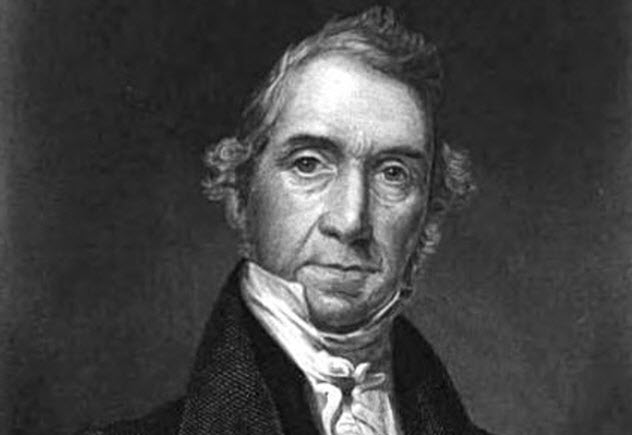
While losing an election by one vote would be a bad experience, winning by one vote would be fantastic. Sure, it would technically be better to win by an enormous margin, but there is an immense satisfaction that comes from winning when the competition is so close.
Well, for Marcus Morton, one wasn’t enough. One election, that is.[3]
In 1839, Morton won the race for the Massachusetts governorship by a single vote—for a total of 51,034 votes. Not content to win just one election by one vote, Morton pulled off the same feat three years later when he was elected to the legislative branch by a single vote. These two victories earned him the nickname Marcus “Landslide” Morton.
7 Unpopular Vote
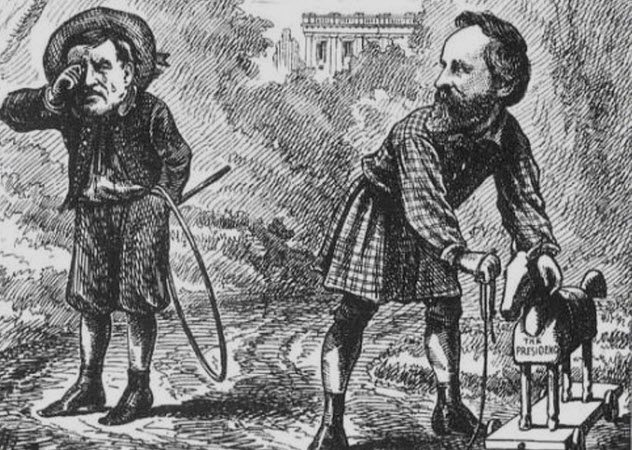
No list of election victories would be complete without mentioning one of the many times a US president has been elected without winning the popular vote. This is what happened in 1876, and as always, it was the less popular Republican candidate who benefited by the single vote. Not just once, but twice.[4]
Republican nominee Rutherford B. Hayes lost the popular vote to Democratic nominee Samuel J. Tilden, but Tilden fell one short of securing the necessary 185 electoral votes. With 20 electoral votes being disputed, a Congressional committee was established to decide where they should go. In the end, Hayes won out, with eight committee members voting in his favor over Tilden’s seven.
6 Zanzibar’s Final Government

In 1961, Zanzibar was rocked by a shock election that played a deciding role in the future of its very existence. Like many other countries, Zanzibar had recently freed itself from British colonization, at which point it came under Arab rule. After a coup against the sultan, the election of 1961 decided whether the country would cement its Arab government or take a less nationalistic, more Afrocentric approach.
It looked as though the Arab-majority Zanzibar Nationalist Party (ZNP) would dominate the elections, which they did in many ways. Although the ZNP won more constituencies, securing 9 of the 22 legislative seats, the insurgent Afro-Shirazi Party changed the course of history when they won the city of Chake-Chake by 1,538 to 1,537 and won 10 seats.[5]
The two parties eventually formed a coalition government. A short time later, they decided to merge with Tanganyika to form Tanzania.
5 Jefferson’s Slavery Ban
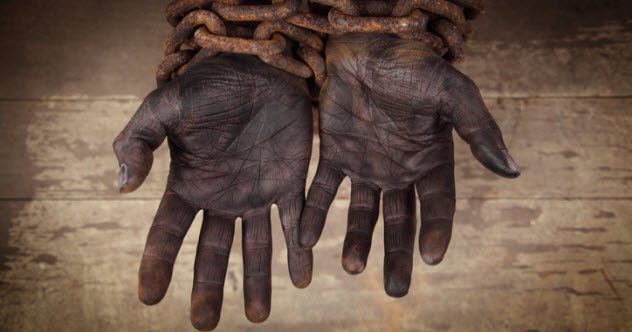
Few figures are as influential in American history as Thomas Jefferson. Founding father, author of the Declaration of Independence, and third president of the United States, Jefferson helped to make the United States what it is today. But if he had gotten his way, he would have made it something very different.
Before he became president and while the states were still uniting, Jefferson drafted the Ordinance of 1784, which would decide the fate of the newly acquired land to the west. An early draft suggested abolishing slavery and servitude in the new territories after 1800, although the final proposal extended this to all US territories.[6]
Unfortunately, a delegate from New Jersey fell ill on the day of the vote and was unable to support the motion, which lost by one vote. Although Jefferson owned slaves and admittedly saw black people as an inferior race, he continued to fight for the rights of African Americans and Native Americans and eventually abolished the slave trade in 1808.
4 Cromwell’s Rise

Oliver Cromwell is a controversial figure in British history. While many in Britain revere him as the father of modern democracy, others in Britain and most in Ireland view him as a genocidal despot.
This all began in 1645 when Cromwell was elected head of the New Model Army by a single vote. Many people mistakenly attribute this vote to his later rise to total control over Britain and Ireland, but that is not the case.
After being elected head of the New Model Army, Cromwell led a civil war against Charles I.[7] This was a very successful campaign, which saw his army wipe out over 40 percent of the Irish population. Some estimates claim it was as high as 83 percent.
Cromwell would later become Lord Protector of England, Scotland, and Ireland. He has been criticized for becoming a king in all but name at this point in his political career, although he continued to fight corruption in his newly established parliament.
Upon Cromwell’s death in 1658, Charles II was reinstalled to the throne with considerably less power than his father. This established the basics of modern democracy in Britain and Ireland, though his legacy is quite different on the two islands.
3 Margaret Thatcher’s Rise
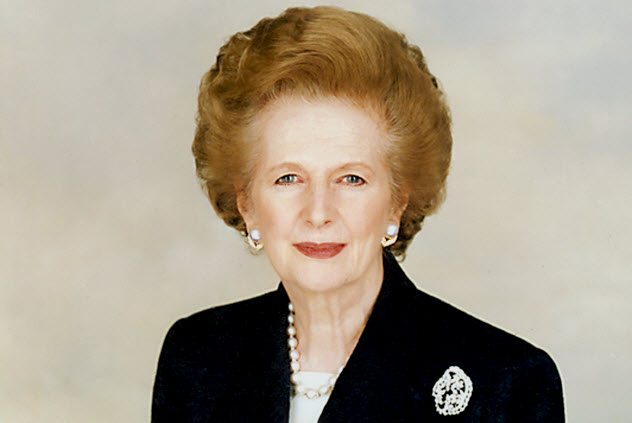
Another of Britain’s most controversial figures was Tory Prime Minister Margaret Thatcher. She was a strong leader who earned respect for herself and her country across the globe, successfully defending the Falkland Islands from Argentinian invasion.
On the other hand, she was seen as an elitist who increased wealth inequality. She also managed to infuriate both Unionists and Republicans in Northern Ireland, two groups that agree on almost nothing, with her contempt for the Troubles.
Years on, we can see that many of Thatcher’s policies worked out, encouraging the private sector and even setting the stage for the Good Friday Agreement in Northern Ireland, one of the most successful peace deals in modern history. Whether or not you agree with Thatcher’s policies, her tenure as prime minister may never have happened were it not for a single parliamentary vote.
In 1979, Thatcher, then leader of the opposition party, tabled a motion of no confidence against Labour PM James Callaghan. The motion passed 311 to 310, and the rest is history.[8]
2 Claiborne’s Integrity
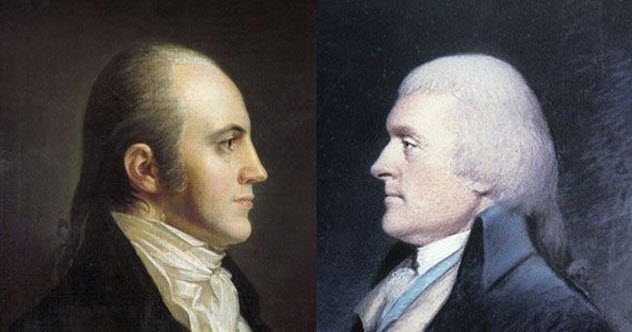
In the US presidential election of 1800, incumbent President John Adams was wiped out by two rival candidates, Thomas Jefferson and Aaron Burr. However, the final decision for the position of POTUS was left to the electoral college.
When the contest remained at a stalemate, it was decided that each state would get only one vote. William C.C. Claiborne was chosen to represent Tennessee. Had anyone else been selected, we could be talking about the corrupt success of President Burr.
Claiborne had hoped to become a district judge under President Washington, but future President Andrew Jackson advised Washington that, while Claiborne was a good man, he did not have the experience for such a position.
Instead of becoming a judge, Claiborne succeeded Jackson in the US House of Representatives. Jackson became a US Senator and later a judge on the Tennessee Supreme Court. Ultimately, this gave Claiborne the deciding vote in 1800.
He was a young man with no family money, which made him an easy target for bribes. Although he received many such offers, he turned them all down. Thirty-six votes were held, each ending in a draw. Claiborne stuck to his guns, voting for Jefferson every time until Delaware abstained and Jefferson was elected.[9]
1 The First Impeachment
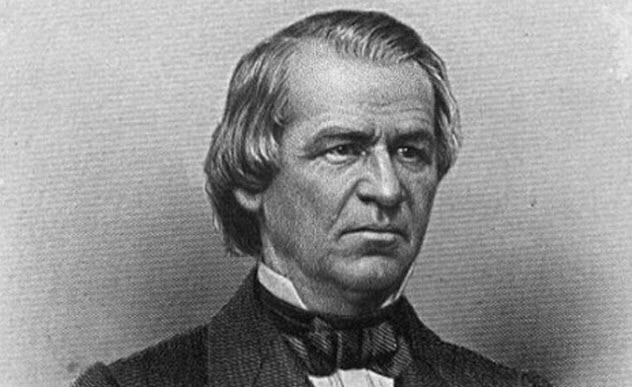
Only two presidents in US history have ever been impeached: Andrew Johnson and Bill Clinton. To be clear, while most people equate impeachment with a charge of treason, it can also mean that a public official has been charged with an offense.
After Abraham Lincoln was assassinated in 1865, Andrew Johnson was sworn in. His forgiving approach to Confederates made him unpopular with Republicans, and Congress soon passed the Tenure of Office Act, making it a crime for a president to remove certain officials without Senate approval.[10]
One such official was Secretary of War Edwin M. Stanton. Johnson replaced Stanton with Ulysses S. Grant, who returned the office to Stanton before Johnson gave it away again, this time to General Lorenzo Thomas. These two decisions led the House of Representatives to begin impeachment proceedings against President Johnson.
The trial lasted 11 weeks, and although Johnson was impeached, he was not removed from office. To be stripped of the presidency, two-thirds of the Senators would have had to have found him guilty. However, some Republicans did not vote along party lines and the party fell one vote short of removing Johnson from office.
+ Hitler’s Dissident
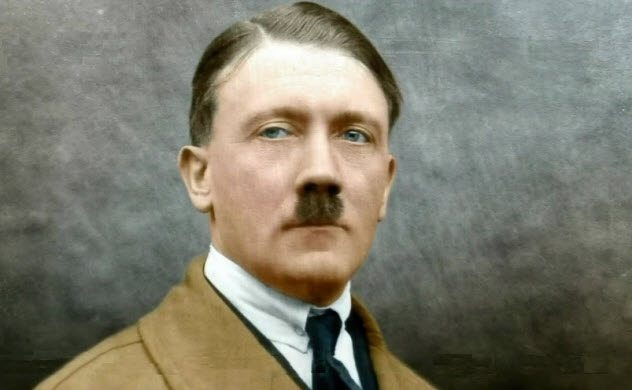
When discussing the importance of one vote, a popular urban legend is that Adolf Hitler was elected leader of the Nazi Party by a single vote. Oh, how different the world could have been had a few people changed their minds, right?
In fact, the truth is the exact opposite. Many members of the Nazi Party thought that Hitler was too ambitious and tried to limit his power. When he left because of this, they panicked about losing their most influential member.
As a result, Hitler returned with a new set of demands that gave him even more power. Of the 554 members eligible to vote, just one voted against taking Hitler back with his new demands.[11]
Simon thinks people who vote are cool and hip. Follow him on Twitter here.
Read more about elections that were unexpectedly changed—this time through dirty politics and corruption—on 10 Historical Elections Fraught With Dirty Politics and 10 Papal Elections As Corrupt As Anything In Politics.








